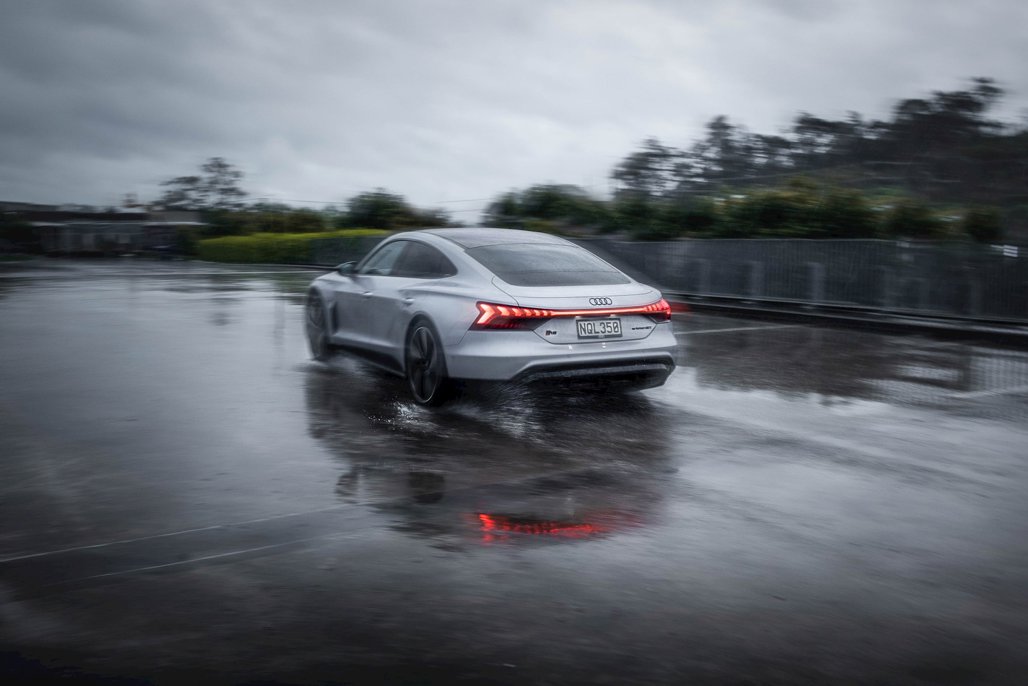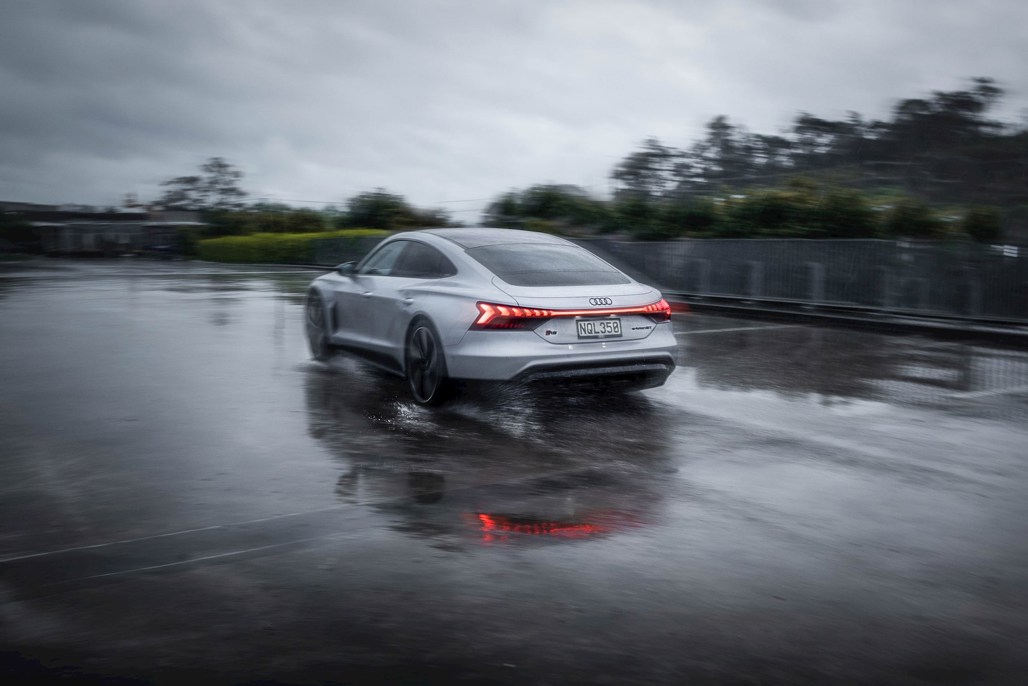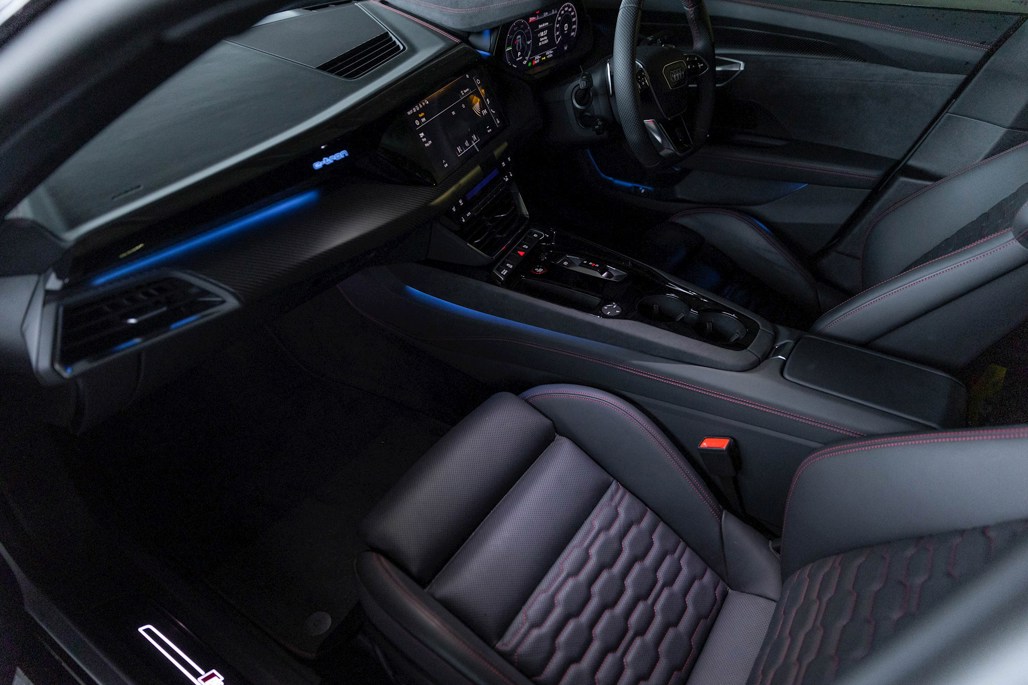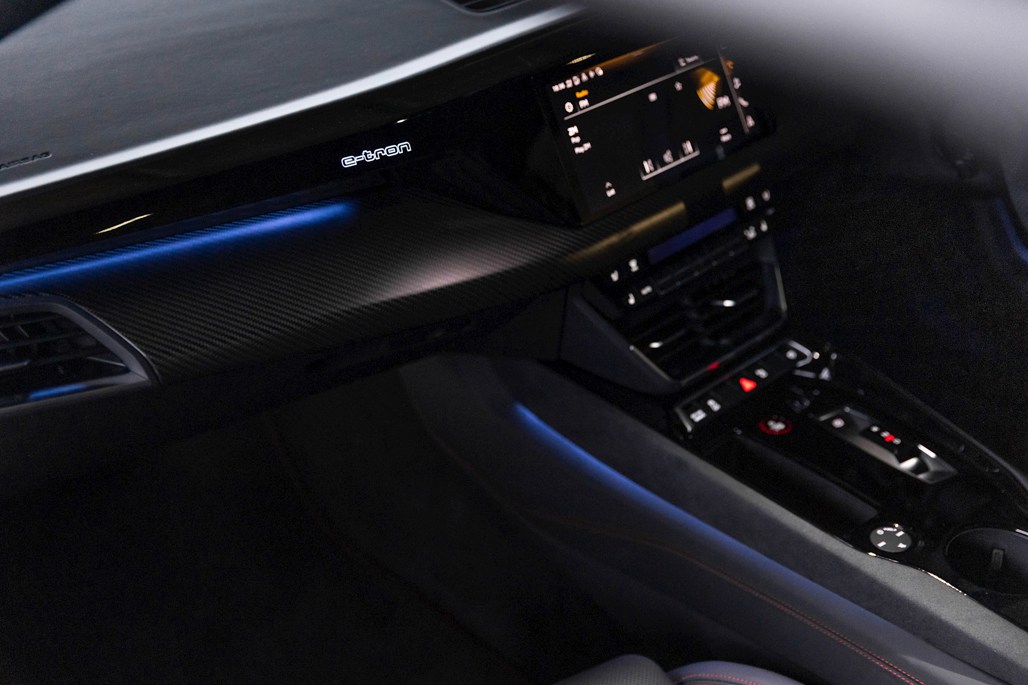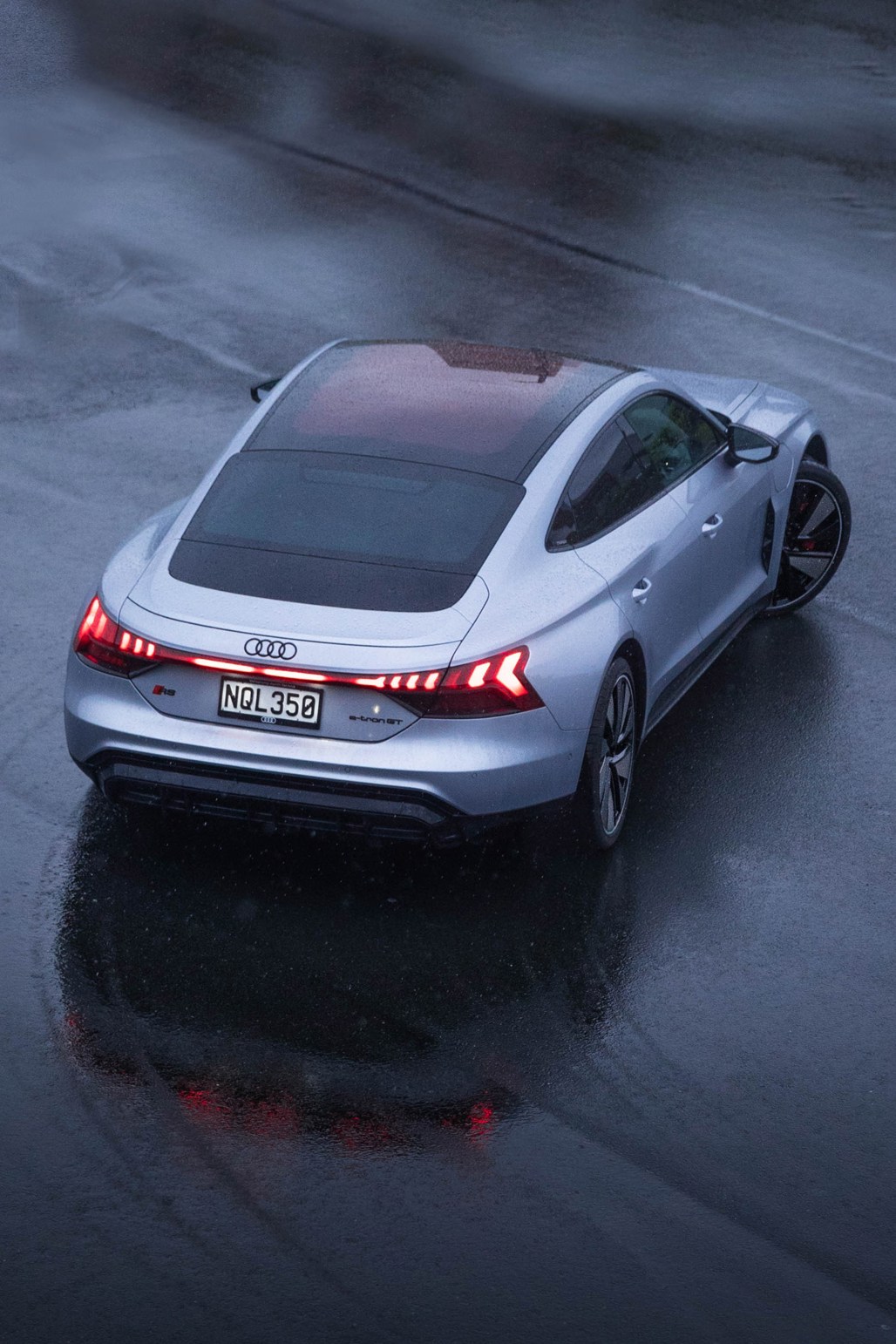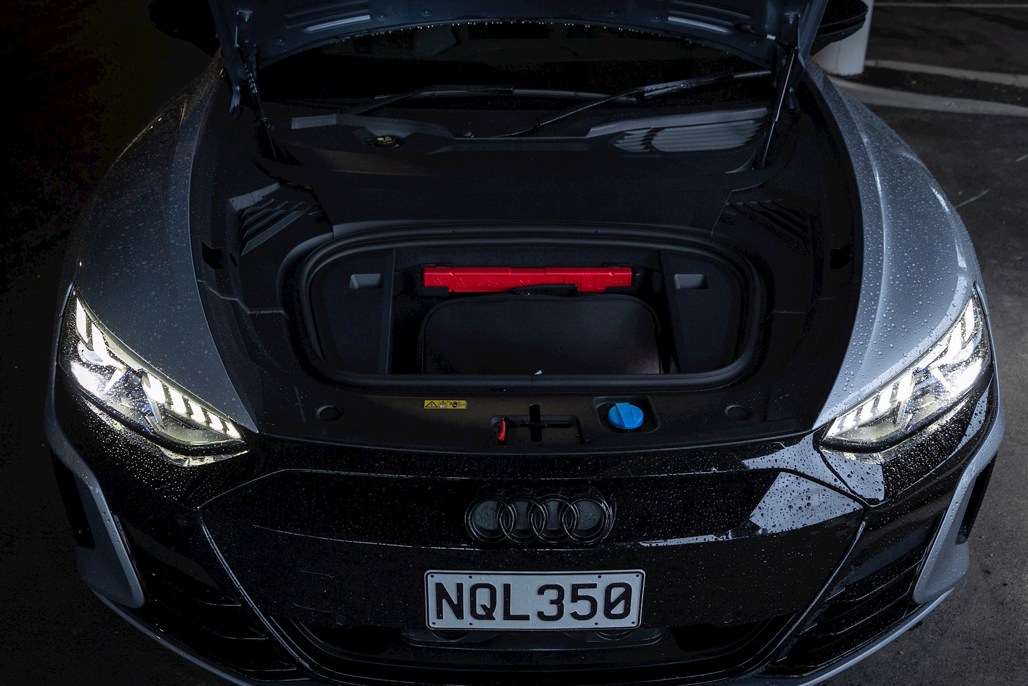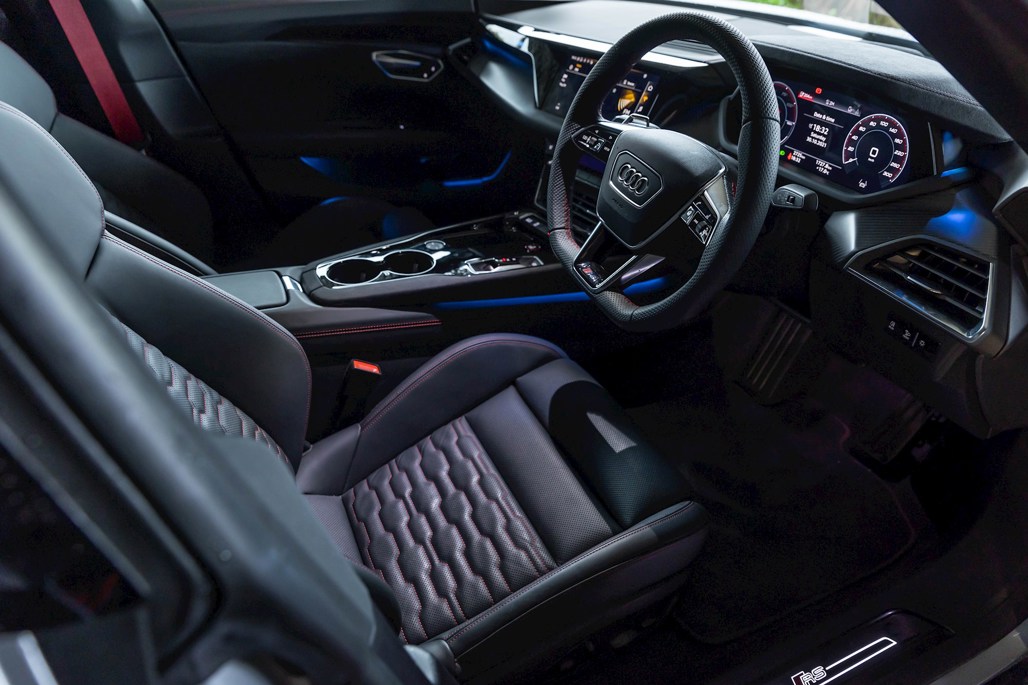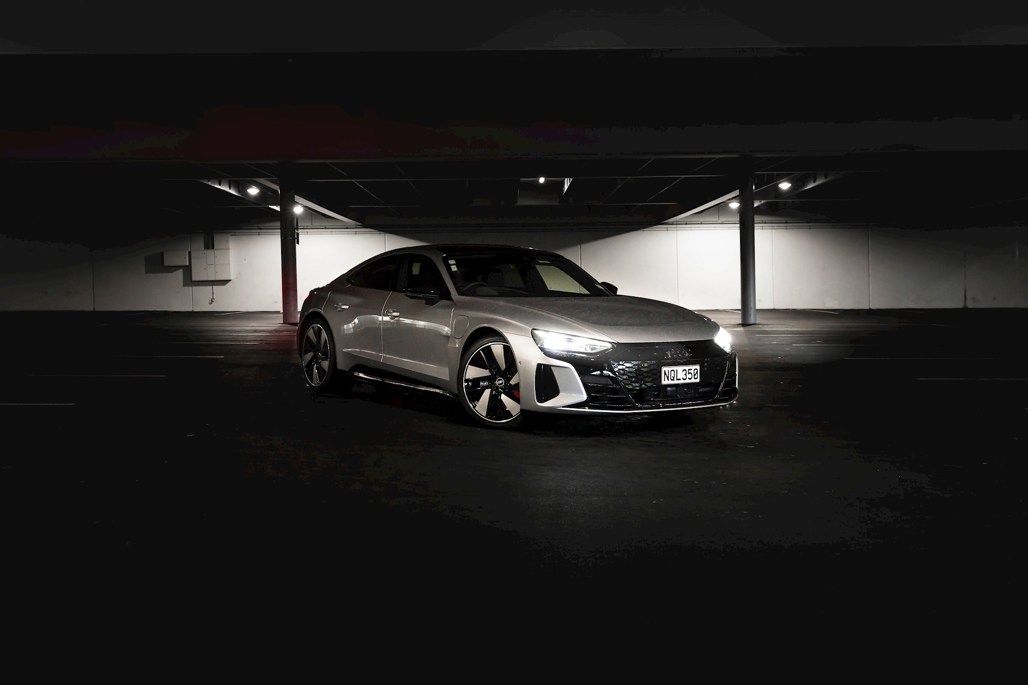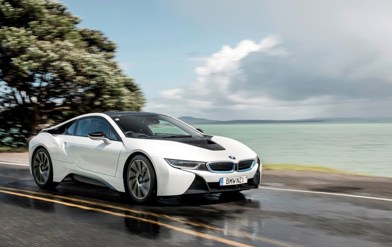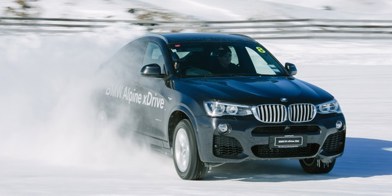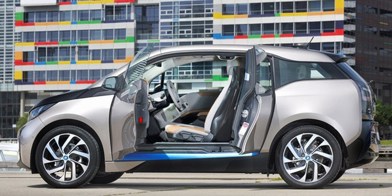Back in 2019, Audi pulled the covers off the fourth-generation RS6 Avant, which came with a mammoth 440kW/800Nm from its 4.0-litre twin-turbo V8.
While it was the coolest thing since sliced bread, it was a bittersweet proposition, as it felt like Audi’s frontier of fire-breathing, ICE-powered performance cars.
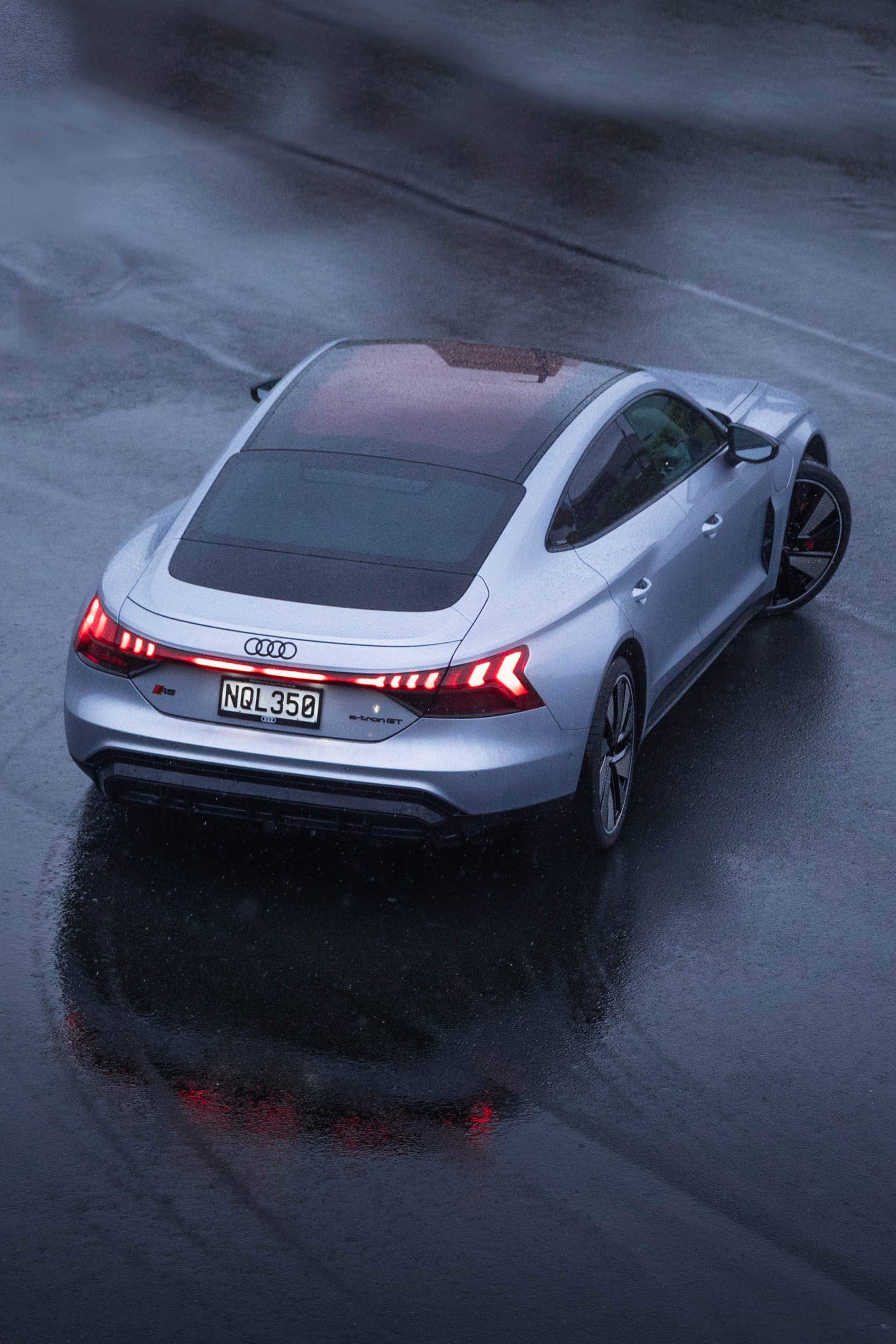
Then, headlines started to appear stating that Audi was ditching petrol and diesel power within the decade, and was moving towards emissions-free cars. It seemed to be doom and gloom for enthusiasts, but Audi was still holding an ace up its sleeve with a rather confusing name: the RS e-tron GT.
Not only did Audi silence the critics with its first all-electric performance car, it doubled down on the performance by bettering the power and torque figures of that RS6.
There are two cars in the e-tron GT range. It starts at $194,500 with the e-tron GT quattro, moving up to the RS e-tron GT at $273,500. If you’re wondering how different these two electric Audis can be to justify an $80,000 difference, you aren’t alone, but know that it lies in that RS badge.
Built on the same platform as the Porsche Taycan, the e-tron GT feels like one of the most well-built electric vehicles on the market, and the RS adds mind-bending performance.
The dual-motor system gets power from a 93kWh battery, and makes 440kW/800Nm. This can be increased to 475kW for short periods with a boost function, allowing the GT to hit 100km/h in 3.3 seconds. A two-speed automatic transmission works with all-wheel drive to maintain traction.
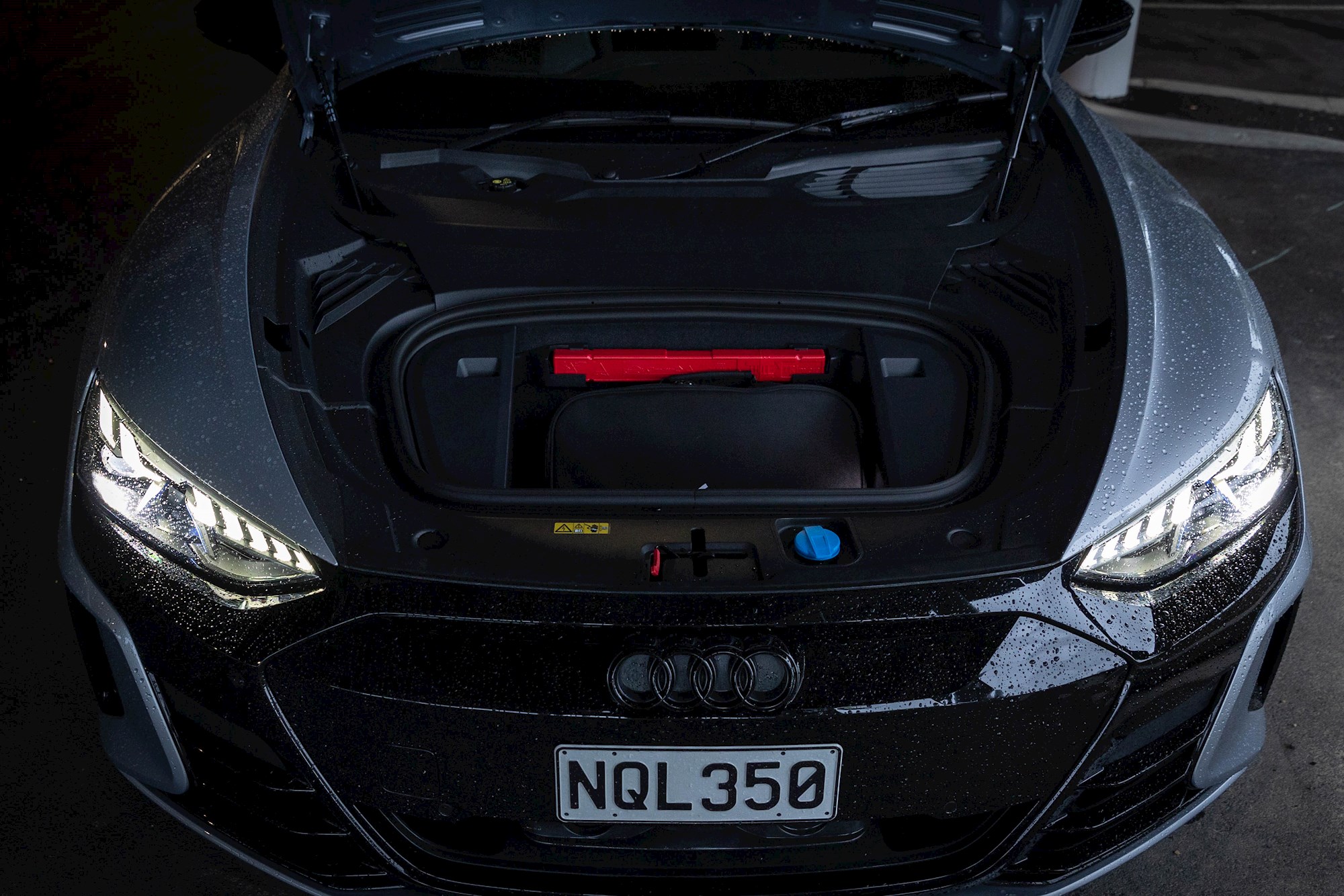
Interestingly, the RS e-tron GT comes standard with a rear locking differential, something that can come in handy if you’re planning on sending it sideways at a track.
Though this electric Audi comes packed with tech for the local track, we imagine it will spend more time on the commute. The RS e-tron GT is just as comfortable as it is fast. Like other Audis, it comes
with a range of drive modes that not only affect the stiffness of the suspension, but also how the car’s electric drivetrain feels and sounds.
Obviously, Dynamic is the most hardcore, with stiff RS suspension and a snappy throttle response, but switch it into Comfort and things get a lot more relaxed. Though this e-tron tips the scales at over 2.3 tonnes, much of it sits in the floor-mounted batteries, lowering the centre of gravity, so when the suspension is stiff, it’s a rigid performance machine.
In Comfort mode body roll is a little more noticeable, but it’s a worthy compromise for the ride that soaks up almost every divot a road can throw at it. The power delivery isn’t as sharp in this mode, and is delivered in a more linear way like a traditional ICE-powered car. Some might prefer this mode alongside the stiff suspension, which you could set up in the Individual menu of the configurator.
When the e-tron GT isn’t being driven in typical RS fashion, Audi claims a range of 472km. We found this to be quite accurate, with over 400km achieved during a drive with a couple of “enthusiastic” moments.
Inside, the RS e-tron GT doesn’t go for a massive dash-mounted touchscreen like some BEVs; instead, it gets a reasonably sized one that sits above the climate control buttons. The small gear selector is strange to use at first, but becomes second nature in time. The bucket seats are extremely comfortable on long trips, but also do their job of holding a driver in well.
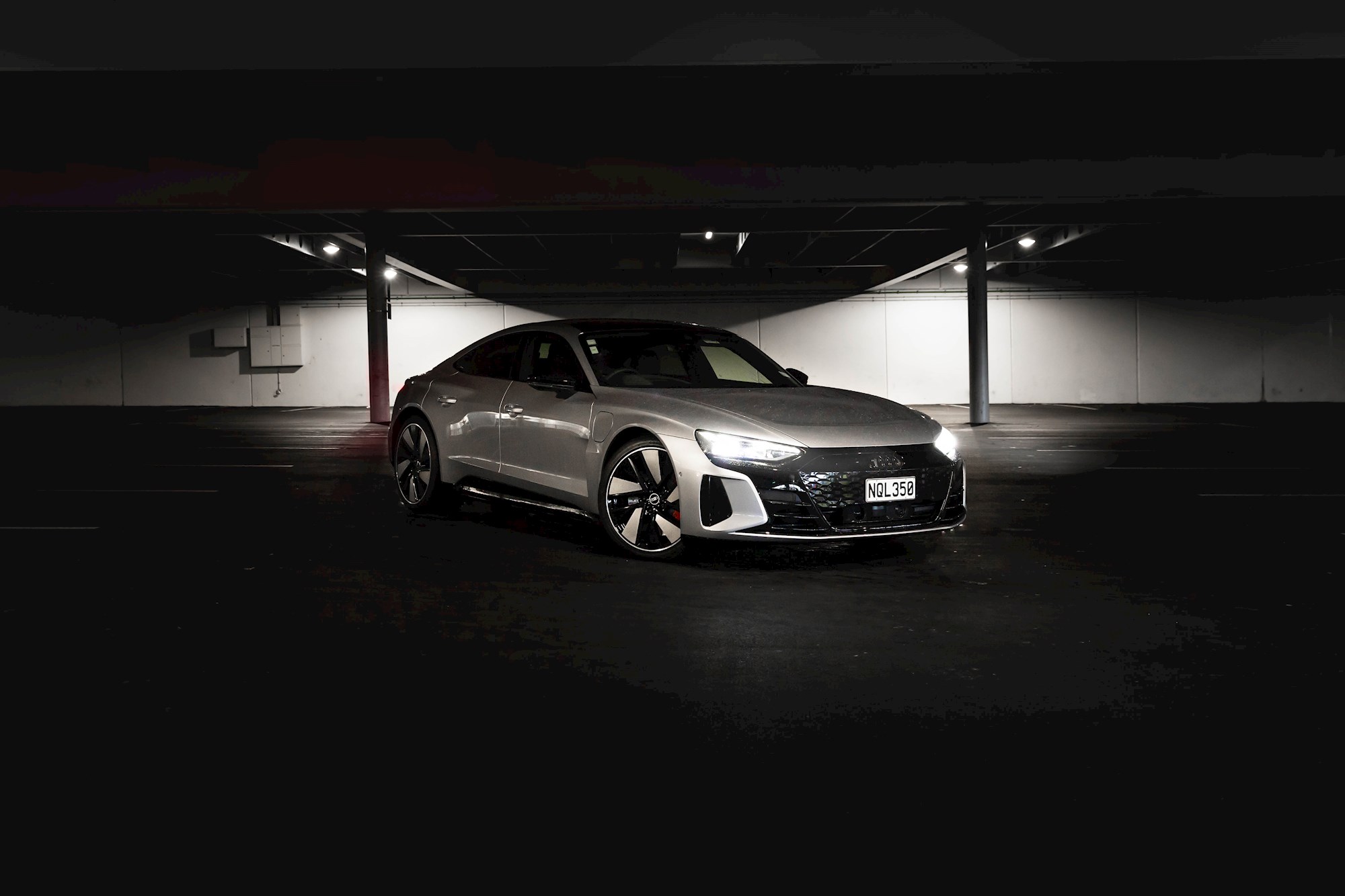
On the topic of living with the e-tron, the seating position is extremely low, and some might have trouble getting in and out. While it seems a very long and wide car from the styling, the second row is quite tight for anyone near the six-foot mark, and legroom is scarce. Like the good old sedan days, the boot is extremely generous, and while the froot (front boot) won’t fit much more than a standard shopping bag – it’s a handy thing to have.
I think the Audi RS e-tron GT sets a benchmark for the first-generation of electric performance machines. Right now, it only faces competition from its Porsche-built Taycan cousin, and the Tesla Model S Plaid. All three of these battery-powered beasts sit around the quarter-of-a-million-dollar mark, and are all extremely fast. With 0-100km/h in 2.1 seconds, the Tesla is by far the fastest, but in all honestly, I’d be going for this Audi given the choice. While the Porsche might be a more “special” car, and the Tesla a faster one, nothing is as striking on the road right now as the RS e-tron GT. It’s easily the best Audi-badged car I have driven.
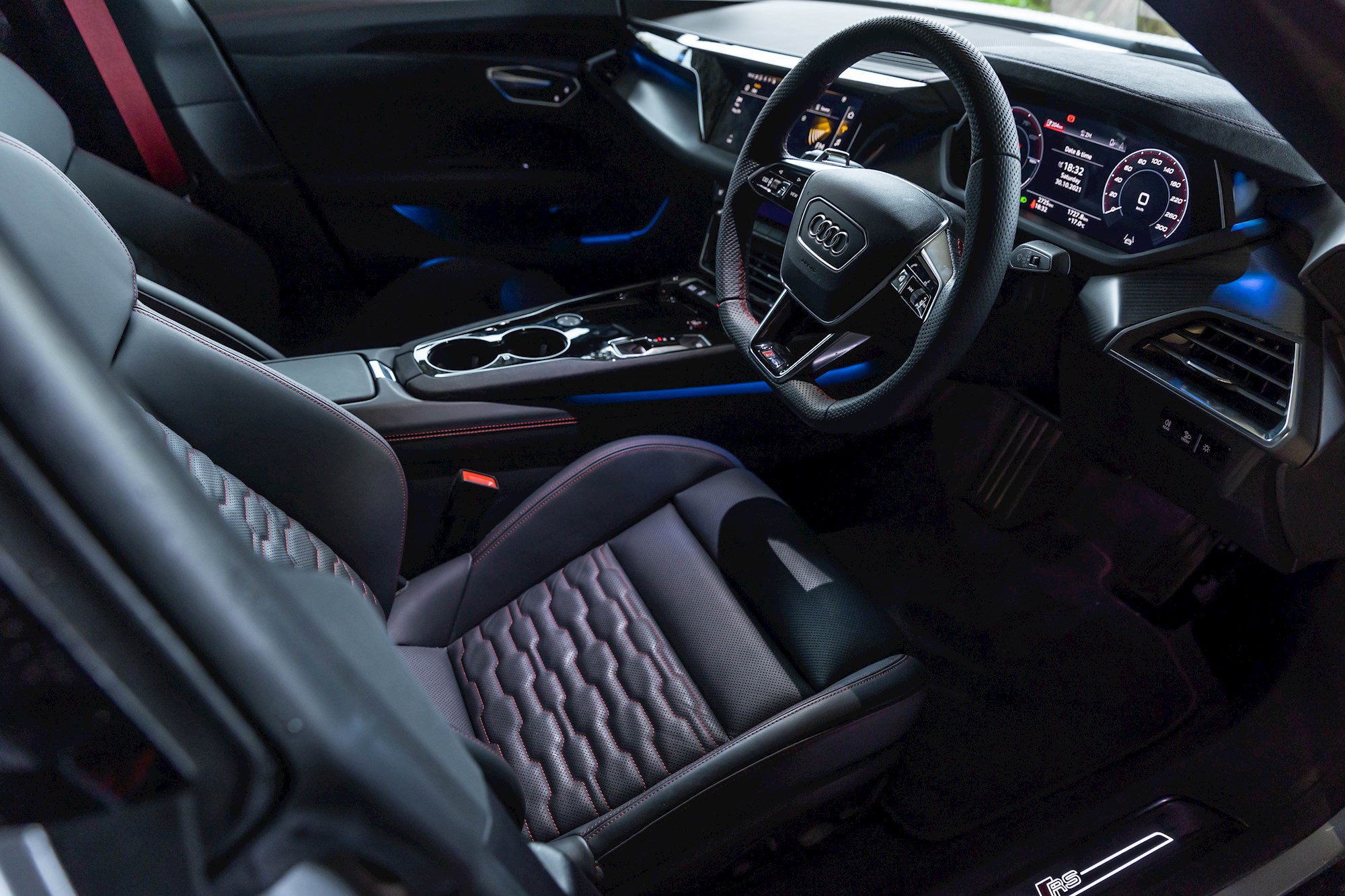
AUDI RS E-TRON GT
ENGINE: 93kWh lithium-ion battery, dual electric motors
POWER: 440kW/830Nm
GEARBOX: Two-speed automatic, AWD
0-100KM/H: 3.3 seconds
CONSUMPTION: 22.5kWh/100km, range 472km
PRICE: $273,500
